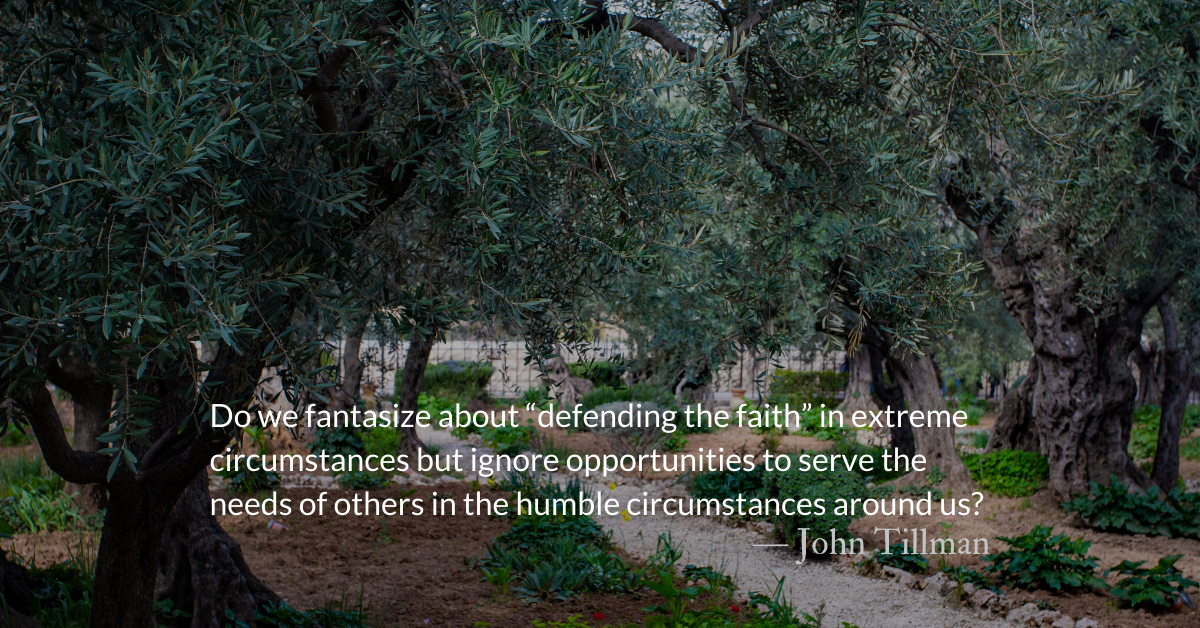Scripture Focus: Mark 16.9
He appeared first to Mary Magdalene…
Luke 24.22-25
In addition, some of our women amazed us. They went to the tomb early this morning but didn’t find his body. They came and told us that they had seen a vision of angels, who said he was alive. Then some of our companions went to the tomb and found it just as the women had said, but they did not see Jesus.”
He said to them, “How foolish you are, and how slow to believe all that the prophets have spoken!”
John 20.19
On the evening of that first day of the week, when the disciples were together, with the doors locked for fear of the Jewish leaders, Jesus came and stood among them and said, “Peace be with you!”
*This Easter week as we shelter in our homes due to COVID-19, we may feel more like the fearful gathered disciples than we ever have before. We will look this week at the appearances of Jesus, who comes to stand in our troubled midst and say, “Peace be with you.”
Reflection: Ladies First—Resurrection Appearances
By John Tillman
“Firsts” are important in the scriptures. So we cannot imagine that it is a coincidence or a mistake that Jesus appears first to the women.
One reason Jesus may have done this is that they, along with John, were with him to the end. They were the last faces he saw as he gave up his spirit. It makes sense that he would honor them to be the first to behold his now glorified face, raised by the Spirit’s power.
Jesus did this despite knowing that no one would believe them. A woman’s testimony was considered invalid in court. Today, a woman’s testimony counts according to the technicalities of the law, but still counts for less in the general culture. All these centuries later, we still have problems in our society taking a woman at her word.
If the gospel accounts had been written late, with intentional warping of the facts to make plausible an extraordinary claim, the women’s testimony, which not even Jesus’ closest followers believed, would have been deleted and replaced with that of Nicodemus or someone else with moral standing. (See more on the trustworthiness of the Resurrection accounts here.)
Instead, Jesus not only appeared to women first, but gave his most personal resurrection greeting to a woman shamed by her culture for having been demon-possessed. Mary Magdalene is also (probably falsely) accused by history of having been a prostitute.
Jesus was intentionally exalting the humbled, by placing the women, and scorned outcasts, at the center of the narrative in an irreplaceable and immovable way.
He also was intentionally confronting the disciples with their cultural blindness and propensity to doubt. This was not to pile shame on them, but to build faith in them. He was weaning them off of faith by sight, knowing that soon they too must believe in him without seeing him.
Faith by sight, is faith limping along on a crutch. Faith by sight dies in the dark. Faith by sight is blind to the Spirit, for it never looks beyond the physical. But the worst thing about faith by sight is that even it still fails.
What is extraordinary about humanity is not that we are capable of believing without seeing. It is that we are capable of seeing, and still refusing to believe.
Like the women, we will be doubted. But let us still run and tell, “I have seen the Lord!”
He is risen! He is risen, indeed!
Divine Hours Prayer: The Cry of the Church
Christ has died. Christ has risen. Christ will come again.
– Divine Hours prayers from The Divine Hours: Prayers for Springtime by Phyllis Tickle.
Today’s Readings
Proverbs 31 (Listen -2:50)
1 Timothy 2 (Listen -1:38)
Read more about Easter—The Happy Beginning
Easter is not a happy ending. It is a happy beginning.
Read more about A New Day :: Worldwide Prayer
May we follow the example of the first witnesses: the women who were more faithful than the betrayers, braver than the soldiers, and the first to believe in and spread the gospel.











